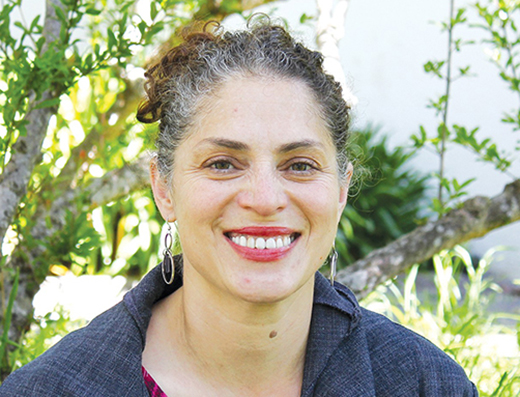The Center for Global Strategic Information and Public Health Practice believes that the road to achieving the UNAIDS 95-95-95 targets – by the year 2030, 95 percent of all people living with HIV will know their HIV status, 95 percent of all people with diagnosed HIV will receive antiretroviral therapy, and 95 percent of all people receiving antiretroviral therapy will have viral suppression – begins by translating the right knowledge into the right decisions.
Since 2000, we have furthered data-driven science in the countries where we work. We help strengthen the capacity of stakeholders to collect, synthesize and use strategic information to inform, guide and monitor evidence-based responses to the HIV epidemic. Our support helps countries control their HIV epidemics to reach the 95-95-95 targets by 2030.
We also partner with the California Department of Public Health on several projects to help improve the health of Californians.
Current Work
Pacific Southwest Center for Emergency Public Health
We collaborate with local, state and tribal health departments across California, Arizona, Nevada, Hawaii and U.S.-affiliated Pacific territories to enhance our region’s capacity to prepare for and respond to public health threats. Our work involves partnering with diverse stakeholders—including governmental agencies, academic institutions, hospitals, primary care associations and nonprofit organizations—to identify and share effective strategies that advance emergency public health efforts.
Epidemiologic Surveillance
We build the capacities of public health leaders to design, implement and evaluate innovative and epidemiologically rigorous surveillance methodologies to measure disease burden, identify populations in need, understand barriers to care and treatment, and assess population-level program impact. By conducting household-level surveys, population size estimation, and probability-based epidemiological studies among key and priority populations and enhancing case reporting systems, we support data collection, analysis and use for public health decision-making.
Health Informatics and Technology
Our UCSF Health Informatics Hub provides technical, programmatic and managerial expertise to design, develop, implement and utilize health information systems at national and sub-national levels. Through the Informatics Hub, we bring together professionals with expertise in software development; database management; open-source health information systems such as DHIS2, OpenMRS and ODK; data analysis, visualization, reporting and business intelligence systems; app development for Android and iOS; dashboard development; and GIS mapping.
Research and Evaluation
We assist in assessing evidence, guidelines and recommendations, and developing, evaluating and bringing high-impact and low-cost public health interventions to scale. We research to determine the strength of evidence and identify research gaps to inform international research agendas and guideline development. We pioneered an analytical approach called “triangulation,” which integrates multiple data sources to guide programmatic decision-making to address public health problems. We bridge the gaps between evidence, policy and implementation and stimulate practical international and local action to solve critical health challenges.
We served as the editorial base for the Cochrane Collaboration’s HIV/AIDS Group from 1998 to 2015 when the HIV/AIDS Group was absorbed into the Infectious Disease Group. We continue our historic involvement with the Cochrane Collaboration with George Rutherford, MD, as an editor for the Cochrane Infectious Disease Group.
Training and Education
We prepare the next generation of global health leaders through practical, cost-effective education and training activities. We offer state-of-the-art public health training courses and programs, ranging from epidemiological methods to specialized clinical care training. The International Traineeships in AIDS Prevention Studies (ITAPS) program offers blended learning opportunities in scientific writing and mentoring.
We provide technical assistance to academic institutions to create new or strengthen their existing postgraduate degree programs in epidemiology and biostatistics, monitoring and evaluation, and other areas of applied public health research and management.
Tracking the 95/95/95 Cascade
We support countries in meeting the UNAIDS 95-95-95 goals by 2030. By improving data quality, analysis and use, we help countries identify geographies and populations with unmet needs and map them to services and resources.
Program Monitoring and Quality Improvement
We support countries to strengthen their monitoring systems to improve data quality. Our monitoring and quality improvement activities focus on understanding the types of data collected in local, regional and country-level systems and how data can improve patient outcomes through targeted quality improvement activities. We incorporate novel methodologies, analytics, strategic planning and guidance, and toolkits to support programmatic areas such as prevention of mother-to-child transmission of HIV (PMTCT), maternal and child health (MCH), and cohort analysis.
HEALTHQUAL works with national ministries of health and implementing partners to design and implement large-scale improvement activities, such as improvement collaboratives, and facilitates the establishment of sustainable and institutionalized health facility-level and national quality management (QM) programs.
California Department of Public Health Programs
We work with the California Department of Public Health on several projects to help improve the health of Californians. These projects include preventing and controlling sexually transmitted diseases and tuberculosis, supporting immunizations, and building and training our state’s public health workforce.
Where We Work
- Cambodia
- Caribbean
- Democratic Republic of the Congo (DRC)
- Kenya
- Myanmar
- Namibia
- Sierra Leone
- Tanzania and Zanzibar
- Thailand
- Uganda
- Vietnam
Partners
- Andrija Stampar School of Public Health
- California Department of Public Health
- Caribbean Vulnerable Communities
- Centers for Disease Control and Prevention
- Cochrane Review Group on HIV/AIDS
- Global Fund
- ICAP at Columbia University
- International Training & Education Center for Health (I-TECH)
- Jamaica Ministry of Health
- Joint United Nations Programs on HIV/AIDS
- Kenya Ministry of Health
- London School of Hygiene & Tropical Diseases
- Makerere University, School of Public Health
- Mzumbe University
- Namibia Ministry of Health and Social Services
- National Institutes of Health
- Noguchi Memorial Institute for Medical Research (NMIMR)
- Population Council
- President’s Emergency Plan for AIDS Relief (PEPFAR)
- San Francisco Department of Public Health
- Tanzania Ministry of Health, Community Development, Gender, Elderly, and Children
- University of California, Berkeley
- University of California, Davis
- University of California, Los Angeles
- University of Nairobi
- University of Namibia
- World Health Organization














